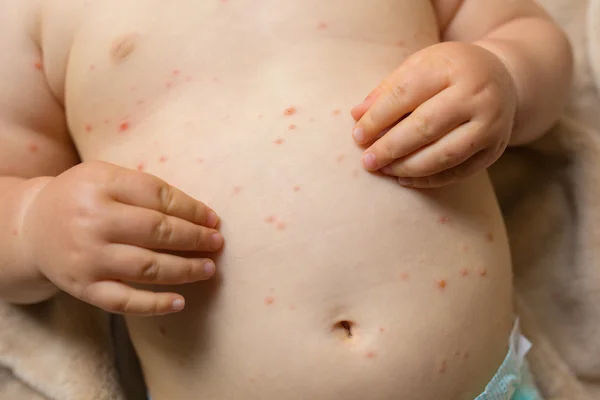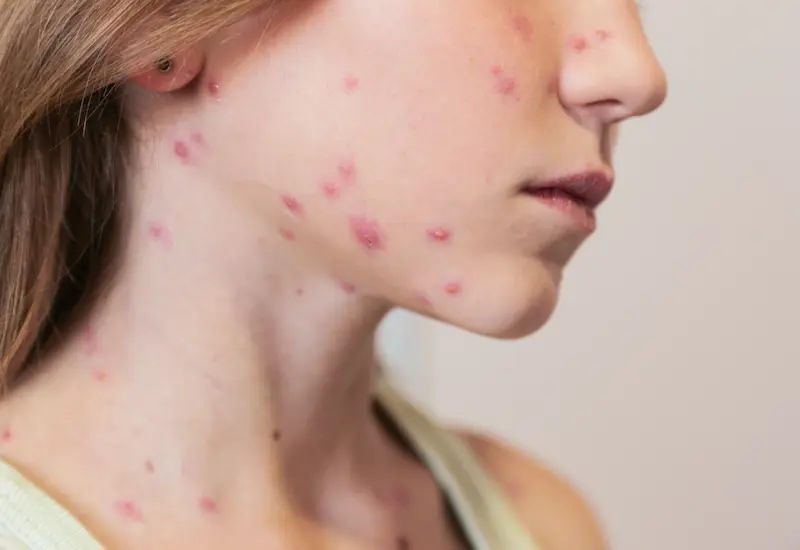Chickenpox Overview: Symptoms, Causes, and Care
Discover chickenpox, its symptoms, causes, and care measures. Learn how this common viral infection spreads, its complications, and effective management strategies.

Written by Dr. Siri Nallapu
Reviewed by Dr. Rohinipriyanka Pondugula MBBS
Last updated on 13th Jan, 2026

Chickenpox is a common viral infection that mostly affects children but can also occur in adults who haven’t been exposed to the virus before. While it’s usually mild, it can be uncomfortable and, in rare cases, lead to complications. Understanding its symptoms, causes, and care can help you manage it better and prevent its spread.
What is Chickenpox?
Chickenpox, also known as varicella, is caused by the varicella-zoster virus (VZV). It is highly contagious and spreads easily from person to person. The infection is characterized by an itchy, blister-like rash that appears all over the body. Most people recover fully within a couple of weeks, but the virus can sometimes cause serious health issues, especially in newborns, pregnant women, and people with weakened immune systems.
Consult a Top Specialist
Symptoms of Chickenpox
The symptoms usually appear 10 to 21 days after exposure to the virus. The most common signs include:
1. Rash – Starts as red spots that turn into fluid-filled blisters before crusting over.
2. Fever – Mild to high fever (usually 101°F to 102°F).
3. Fatigue & Body Aches – Feeling tired and achy.
4. Headache – Mild to severe headaches.
5. Loss of Appetite – Reduced desire to eat.
6. Itching – The rash can be extremely itchy and uncomfortable.
The rash typically appears first on the face, chest, and back before spreading to the rest of the body. New blisters may form for several days.
How Does Chickenpox Spread?
Chickenpox spreads very easily through:
- Direct contact with the rash or blisters.
- Airborne droplets when an infected person coughs or sneezes.
- Touching contaminated surfaces (though less common).
A person with chickenpox is contagious 1-2 days before the rash appears and remains infectious until all blisters have crusted over (usually 5-7 days after the rash starts).
Who is at Risk?
While chickenpox is most common in children, certain groups are at higher risk of severe infection:
- Unvaccinated individuals (those who haven’t received the chickenpox vaccine).
- Newborns and infants (if the mother hasn’t had chickenpox or the vaccine).
- Pregnant women (can cause complications for the baby).
- People with weakened immune systems (due to illnesses like HIV or treatments like chemotherapy).
Complications of Chickenpox
Most cases are mild, but some people may develop complications, such as:
- Bacterial skin infections (from scratching blisters).
- Pneumonia (lung infection).
- Encephalitis (brain inflammation).
- Dehydration (due to fever and poor fluid intake).
Adults and high-risk individuals are more likely to experience severe symptoms.
How is Chickenpox Treated?
Since chickenpox is caused by a virus, antibiotics won’t help unless a bacterial infection develops. Treatment focuses on relieving symptoms:
1. Rest & Hydration – Get plenty of rest and drink fluids to prevent dehydration.
2. Fever & Pain Relief – Use acetaminophen (paracetamol) for fever and pain. Avoid aspirin in children (linked to Reye’s syndrome).
3. Itch Relief –
- Apply calamine lotion or oatmeal baths to soothe itching.
- Take antihistamines (like Benadryl) if needed (consult a doctor first).
- Keep nails short to prevent scratching and infection.
4. Antiviral Medication – In severe cases (especially for high-risk individuals), doctors may prescribe acyclovir to reduce symptoms.
Preventing Chickenpox
The best way to prevent chickenpox is through vaccination. The varicella vaccine is safe and highly effective:
- Children: Two doses (first at 12-15 months, second at 4-6 years).
- Adults & Teens: Two doses if not previously vaccinated.
Other preventive measures:
- Avoid close contact with infected individuals.
- Wash hands frequently.
- Disinfect surfaces if someone at home has chickenpox.
When to See a Doctor?
Most cases can be managed at home, but seek medical help if:
- Fever lasts more than 4 days or goes above 102°F (39°C).
- The rash spreads to the eyes, mouth, or genitals.
- Blisters become swollen, red, or ooze pus (sign of infection).
- There’s difficulty breathing, confusion, or severe headache.
If you or your child has chickenpox and falls into a high-risk group, consult a doctor immediately.
Final Thoughts
Chickenpox is a common childhood illness that, while usually mild, can be uncomfortable. The best protection is vaccination, and if infected, proper care can help ease symptoms and prevent complications.
Consult a Top Specialist
Consult a Top Specialist

Dr. Syed Ismail Ali
General Practitioner
7 Years • MBBS
Hyderabad
Apollo 24|7 Clinic, Hyderabad

Dr. Vivek D
General Physician
4 Years • MBBS
Bengaluru
PRESTIGE SHANTHINIKETAN - SOCIETY CLINIC, Bengaluru

Dr Syed Mateen Pasha
General Physician
2 Years • MBBS
Bengaluru
PRESTIGE SHANTHINIKETAN - SOCIETY CLINIC, Bengaluru

Dr. Srujana Mulakalapalli
General Physician/ Internal Medicine Specialist
5 Years • MBBS, MD (GENERAL MEDICINE)
Bengaluru
Apollo Medical Center, Marathahalli, Bengaluru
(25+ Patients)

Dr. Harshendra Jaiswal
General Physician/ Internal Medicine Specialist
12 Years • MBBS , MD (General medicine)
Kolkata
108 DHANA DHANVANTARI Clinic, Kolkata
(25+ Patients)
Consult a Top Specialist

Dr. Syed Ismail Ali
General Practitioner
7 Years • MBBS
Hyderabad
Apollo 24|7 Clinic, Hyderabad

Dr. Vivek D
General Physician
4 Years • MBBS
Bengaluru
PRESTIGE SHANTHINIKETAN - SOCIETY CLINIC, Bengaluru

Dr Syed Mateen Pasha
General Physician
2 Years • MBBS
Bengaluru
PRESTIGE SHANTHINIKETAN - SOCIETY CLINIC, Bengaluru

Dr. Srujana Mulakalapalli
General Physician/ Internal Medicine Specialist
5 Years • MBBS, MD (GENERAL MEDICINE)
Bengaluru
Apollo Medical Center, Marathahalli, Bengaluru
(25+ Patients)

Dr. Harshendra Jaiswal
General Physician/ Internal Medicine Specialist
12 Years • MBBS , MD (General medicine)
Kolkata
108 DHANA DHANVANTARI Clinic, Kolkata
(25+ Patients)

